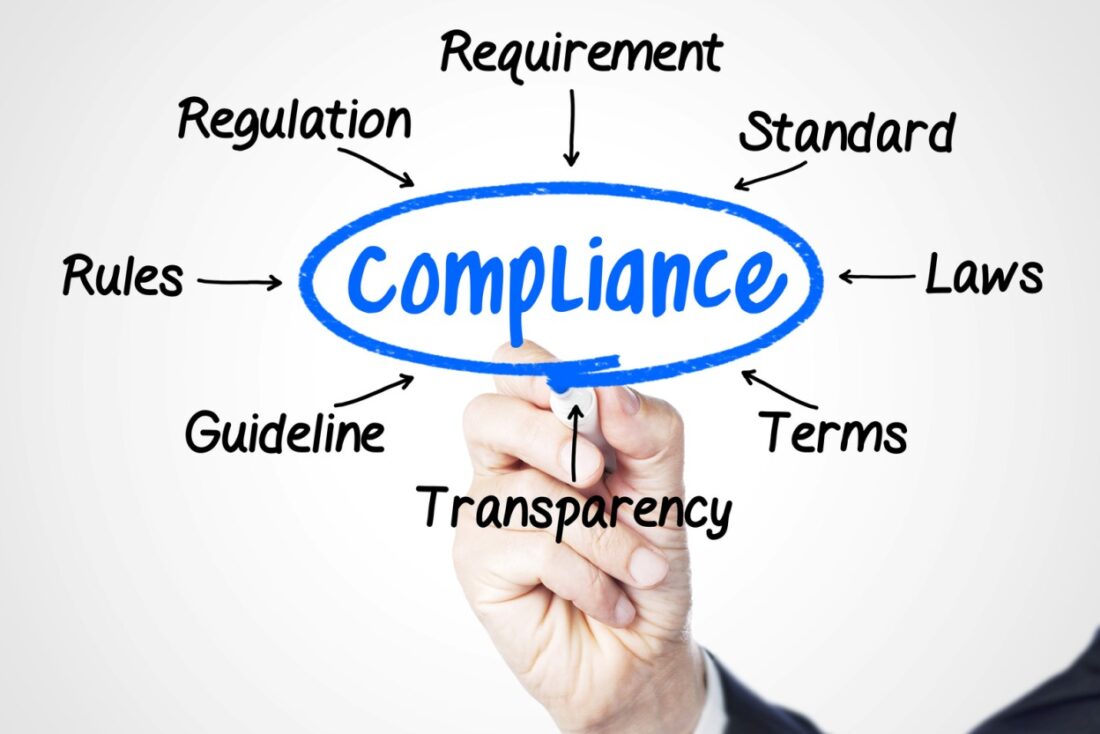 No business in Australia can operate with no risks at all. Every business can face all manner of risks, depending on the industry, so it’s important for business owners, management and staff to be aware of any risks associated with business operation and to have measures in place to mitigate and minimise risk so it doesn’t affect the business in a major way.
No business in Australia can operate with no risks at all. Every business can face all manner of risks, depending on the industry, so it’s important for business owners, management and staff to be aware of any risks associated with business operation and to have measures in place to mitigate and minimise risk so it doesn’t affect the business in a major way.
In this article, we’ll cover some top tips to safeguard your business, to ensure both longevity and profitability.
Table of Contents
#1 – Is Your Business Compliant With Rules & Regulations That Govern Your Industry?
Every business in Australia will have rules and regulations that must be followed. Some of these relate to workplace health and safety, while others will be more industry-specific. In order to follow these rules, you first have to know what they are.
You, or someone in your organisation, need to get very familiar with the compliance laws for your business so you can remain within the guidelines.
Compliance management software can also help enormously with this. Whether your business is large enough to hire someone full-time to deal with compliance management or not, purchasing and installing dedicated software will enable you to keep on top of this very important aspect of the business, maintain a safe work environment and remain on the right side of the law.
#2 – Draft Up a Risk Management Plan
It was mentioned in the introduction that no business is devoid of any risks. No matter what industry you’re involved in, you’ll face risks along the way that could prove dangerous to workers or customers, things that can affect business profits or problems that stifle business growth.
You won’t be able to foresee every conceivable risk when you first start out in business, but it’s important to implement a risk management plan as soon as possible, where you list possible risks you might face, as well as solutions to counteract the risk or to avoid a problem occurring in the first place.
Once you’ve started your risk management plan and begin to implement ways to improve business operations to reduce risk, you’ll likely find yourself adding more elements to the plan over time as you learn more about your business and industry.
Another way to determine what to look out for and be aware of is to study other established businesses in your field and see what risks they’ve faced or problems they’ve had to solve. This will give you a heads-up on these issues before you are faced with them yourself. Learning more about your competitors will go a long way to ensuring your business operates with less problems.
#3 – Hire a Risk Management Professional
Enlisting the services of a risk management professional could be well worth the investment. If your business can absorb having a full-time risk manager on board, this person will be responsible for creating risk management plans, identifying potential risks and coming up with practical solutions to avoid issues. They’ll constantly monitor business operations to ensure you’re both compliant and remain at a low-risk status.
If you’re a small business, or can’t justify hiring a risk manager full-time, then having one come in on a consultancy basis will at least help you identify risks and learn how you can tighten up your operation.
Risk management and compliance is more about prevention, so hiring a risk manager could potentially save your business a lot of money and keep you in business for long.
#4 – Hold Regular Team Meetings
To keep business profitable, moving forward and to help minimise problems, it’s important to hold regular staff meetings so everyone is aware of the direction the business is going and to highlight any problem areas.
One key element of staff meetings is employees get to offer their input, which can prove invaluable for business owners. After all, it’s the employees who are there day after day on the ground floor. If there is a potential issue present, they’ll likely be able to point it out to you. Input from every person involved in the business is vital for business success.
In Conclusion
Business success often depends on forethought and how quickly you can eradicate problems before they become a big issue. With a constant focus on risk management and compliance with the law, you can achieve this without your bottom line being affected.







